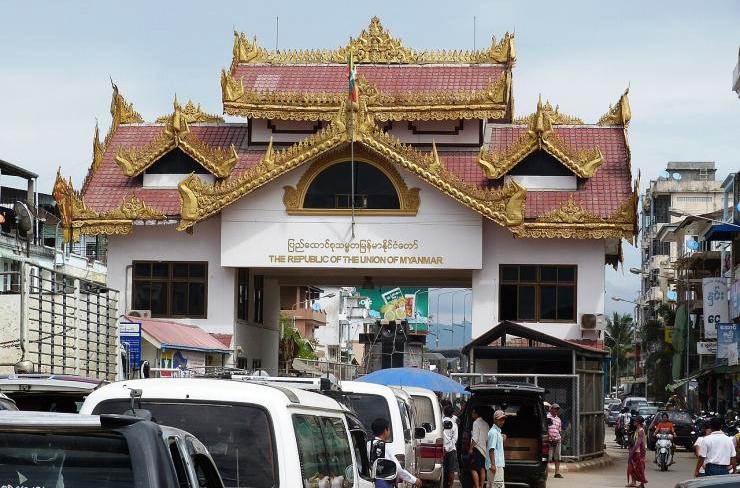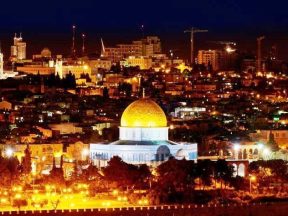Myanmar. The role of “Scam Cities”.

The fate of the war in Myanmar is intertwined with that of the “Scam Cities”, lawless places that produce money continuously and whose control is linked to billions in earnings.
For several months, a war has been underway in Myanmar for control of the border centre of Myawaddy on the Moei River, opposite the Thai city of Mae Sot. Almost entirely conquered by the Karen Resistance in April, the city once again returned to being the centre of clashes after the counter-offensive of the Burmese coup army which, in February 2021, ousted the government of Aung San Suu Kyi. Its value for the
‘rebels’ is very high: if conquered it would signal their total control
over all the country’s borders.
However, several elements make the situation in Miawaddy even more complex, including some small urban conglomerations overlooking the Moei River which marks the border between Myanmar and Thailand.
They are the so-called “Scam Cities” – a series of places built and controlled by the Chinese mafia in cahoots with compliant local governments and corrupt officials, specializing in cyber-crimes via the web and mobile phones.
It is a widespread reality, especially in Myanmar, but also present in other Southeast Asian countries and continuously expanding from east to west: from Southeast Asia to India, but also to Dubai and Georgia. Apparently, the Scam Cities are the real stakes in the battle on the Burmese-Thai border: criminal centres that produce money continuously and whose control would bring billions in profits.
Scam Cities are not simply call centres but real urban centres of recent construction, as in Myanmar or Laos, or even just more or less disguised buildings in some important Asian cities (such as Sihanoukville in Cambodia). Their control goes far beyond criminal dynamics: as the Burmese case demonstrates, the value of these cities is such that it can change the outcome of a conflict.
According to the United Nations, in South-East Asia alone the scam centres employ over two hundred thousand people, modern cyber-slaves, hired with the promise of large salary rewards through internet advertising or criminal employment offices.
The victims, the future “scammers”, are then deprived of their passports and telephones and are not released until they have reached a certain profit target. Those who try to escape or complain are beaten, tortured and even killed, as told by the stories collected among the rare fugitives by an international team that has been working for years on this criminal, violent and very well-structured phenomenon.
Scam Cities are born with a structure that sees the classic setting of the cities of vice: casinos, online gambling, prostitution, usury, human trafficking, blackmail and violence. But these buildings (compounds), in which there are cyber-slaves assigned to stay on their cell phones
for the whole day, are new.
The Burmese case is perhaps the most interesting because it links Scam Cities to war, a context that facilitates criminal profit. Miawaddy is a clear example of this. The Burmese Scam Cities were born a few years ago along the borders with China and Thailand as large or small border gambling centres. But after the Resistance reconquered these conglomerations on the Chinese border last year with the famous Operation 1027 at the end of 2023, business moved to the border with Thailand, strengthening the Scam Cities already present.
In 2024, however, the Karen Resistance attacked Myawaddy, allying itself with the Border Brigades (BGF), an army of Karen militiamen who, after the coup, had unequivocally sided with the military junta in exchange for protection for the Scam Cities they have controlled since cyber-crimes their creation. The BGF, which transformed into the Karen National Army (KNA) in February, fought alongside the Karen National Liberation
Army (KNLA – the historical force of Karen autonomy),
but only for a short time.
Recently they have changed sides again by allying themselves once more with the military coup leaders and guaranteeing them the possibility of regaining the lost ground in Myawaddy. No wonder: The commander of the BGF-KNA – Colonel Saw Chit Thu – is in fact closely linked to the creation of Shwe Kokko, the headquarters of the BGF-KNA and Scam City par excellence, a few kilometres from Myawaddy.
It therefore seems that these variable alliances – and therefore the outcome of the war – also depend essentially on who will be able to control and manage the Scam Cities that the Karen Resistance says it wants to eliminate while the BGF (and the military junta) want to continue to operate, limiting themselves only to some superficial operations.
A recent Justice for Myanmar investigation into Scam City explains that “The BGF/KNA is led by Saw Chit Thu, a colonel, general secretary and senior advisor to the militia group…who has become a leading figure in the splinter group Karen Democratic Buddhist Army (DKBA).), who signed a ceasefire with the then military junta.
In 2010, the DKBA was transformed into a ‘Border Guard Force’…benefitting, in exchange for integration into Myanmar’s military command, material battlefield support provided by the army and space to build lucrative criminal businesses. The Myanmar army in turn has benefited from the revenue derived from them.”
The dossier was probably ready for months, but during the provisional alliance between BGF/KNA and KNLA, it was kept at a standstill. Now, however, it has been made public and reconstructs the entire chain of command and control of the Scam Cities along the border. The BGF denies all accusations as well as its about-face to the detriment of the Karen Resistance.
How much is all this worth? According to the UNODC, illicit financial flows in the Mekong region suggest that “the scam industry in a single country in the region could generate between 7.5 and 12.5 billion dollars or half the gross domestic product of the country itself”. Very relative estimates and probably underestimated. Sufficient profit of which to be in control. (Open Photo: The border gate in Myawaddy. CC BY-SA 3.0/Go-Myanmar
Emanuele Giordana/ISPI



